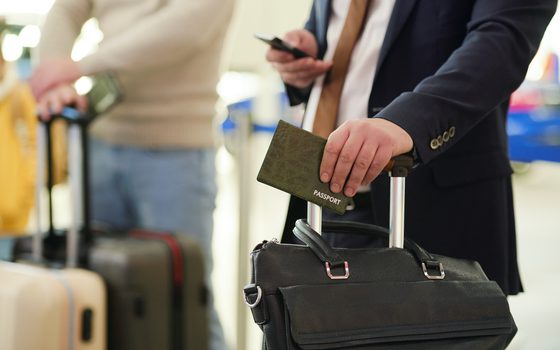Flybe’s near collapse should be a wakeup call for the government
Instead of cutting taxes on airlines, we should be using them to fight the climate crisis.
15 January 2020
Flybe, Europe’s largest regional airline, has been saved. Having already been bought out by Virgin Atlantic last year, last night it was government ministers that helped save the Exeter-based airline through a short-term deferral for the over £100 million that the company currently owes in air passenger duty (APD). As part of the rescue package, the government has pledged to review APD — the tax levied on flights.
Flybe won’t be the last carbon-intensive industry to face financial hardship. If history is anything to go by it may not even be the last time Flybe encounters financial hardship itself. By providing tax relief the government’s actions force us to question its commitment to a net-zero future and how to transition industries fairly. By reviewing airline taxation the government could double down on its mistake, or get things right. Whether it’s the government or airlines, domestic routes or frequent flyers, we need to ask ourselves: who should pay for the environmental impact of air travel?
Wakeup call from our zero-carbon future
Flybe’s near collapse is a wakeup call for the government. It says something dire about the state of the UK’s transport system that travel to some parts of the country is so completely dependent on one airline that this company’s exit from the market would leave people unable to get to work.
Despite ongoing management problems and tight margins, Flybe has focused their rescue proposals on flight taxation — even though flights are already exempt from both fuel tax and VAT. The current government proposal would halt Flybe’s APD payment on domestic flights for three years, with potential plans to remove APD for all airlines. But applying an industry-wide tax break won’t address the underlying structural problems within the company and, given that it will benefit all domestic airlines equally, won’t result in any competitive advantage for Flybe.
Flybe’s troubles are also a wake-up call about the future of high-carbon industries. Theresa May’s government committed to net-zero emissions by 2050. Even this target, which is not ambitious enough to match the scale of the climate crisis, will require tough choices. With Flybe’s bailout they have hit the snooze button. This morning health secretary Matt Hancock denied that people should be flying less because of the climate crisis. His claims that “flying has already decarbonised” suggests the government doesn’t want to wake up at all.
At the same time, carbon-conscious consumers are already shrinking markets elsewhere. In Germany, domestic passenger traffic was down 12% on the previous month in November 2019, following a long-term downward trend as more people choose to take the train instead. Yesterday, as the UK government was telling Flybe that their business model could be saved, there was big transport news in Germany as the government signed-off on an €86 billion investment in the country’s rail network — the largest in the country’s history. Unlike the UK government, it looks like Germany doesn’t see domestic flights as the answer to connecting different regions.
With Australia burning and the school strikers standing strong, the UK market might shift as well. Any serious attempt at reducing the UK’s carbon footprint simply cannot accommodate large-scale domestic travel by plane. In short, change is coming and Flybe’s struggling business is the first real test of the government’s commitment to net zero.
Who should pay?
In its public statements, Flybe has blamed its financial plight on air passenger duty (APD) — the £13 that is charged on each flight ticket leaving a UK airport. The injustice, as Flybe presents it, is that passengers on domestic return flights are essentially charged twice (once for each direction) when actually they should be charged less.
It is difficult to see how excusing domestic flights from ADP is fair. If anything, domestic flights are more likely to have low-carbon alternatives in trains — especially if the government prioritised rail investments, like those in Germany. We also know that the top fifth of earners fly twice as much as any other group, with that gap is even larger for domestic flights. Is this the group we should be removing taxes for?
Analysing the data on flight use is quite shocking. Currently APD is applied as a flat rate for each flight, regardless of type, region or passenger income. However, we know that just 15% of people take over 70% of flights — and that those who fly frequently are on average higher earners. But the emissions from flying affect everyone equally. You are exposed to global heating whether you took 100 flights last year or zero.
Flybe has made the case for changing taxes to benefit domestic over international flights. Now that the topic is on the table, rather than effectively removing APD for domestic flights, policymakers should re-design it so that flying remains affordable in moderation, but frequent flying is discouraged. NEF proposed such a model back in 2015. The Frequent Flyer Levy would mean that the first return flight each passenger took a year would not be charged tax, but each subsequent flight would be taxed at an increasing rate. Frequent flyers (who are generally high earners) would be charged more, to encourage them to reduce their flying. NEF modelling showed that the new levy would be revenue neutral, raising the same amount of money that APD does currently.
As carbon-intensive industries will have to shrink to meet net zero, a Frequent Flyer Levy would maintain revenues that can be put towards clean transport infrastructure like rail, so that passengers do not have to rely on flying domestically. The government should commit to a national plan for decarbonisation, with unions playing an active role in co-designing industrial strategy, particularly for high-carbon sectors like aviation, which will be heavily affected.
Topics Climate change Environment Transport






